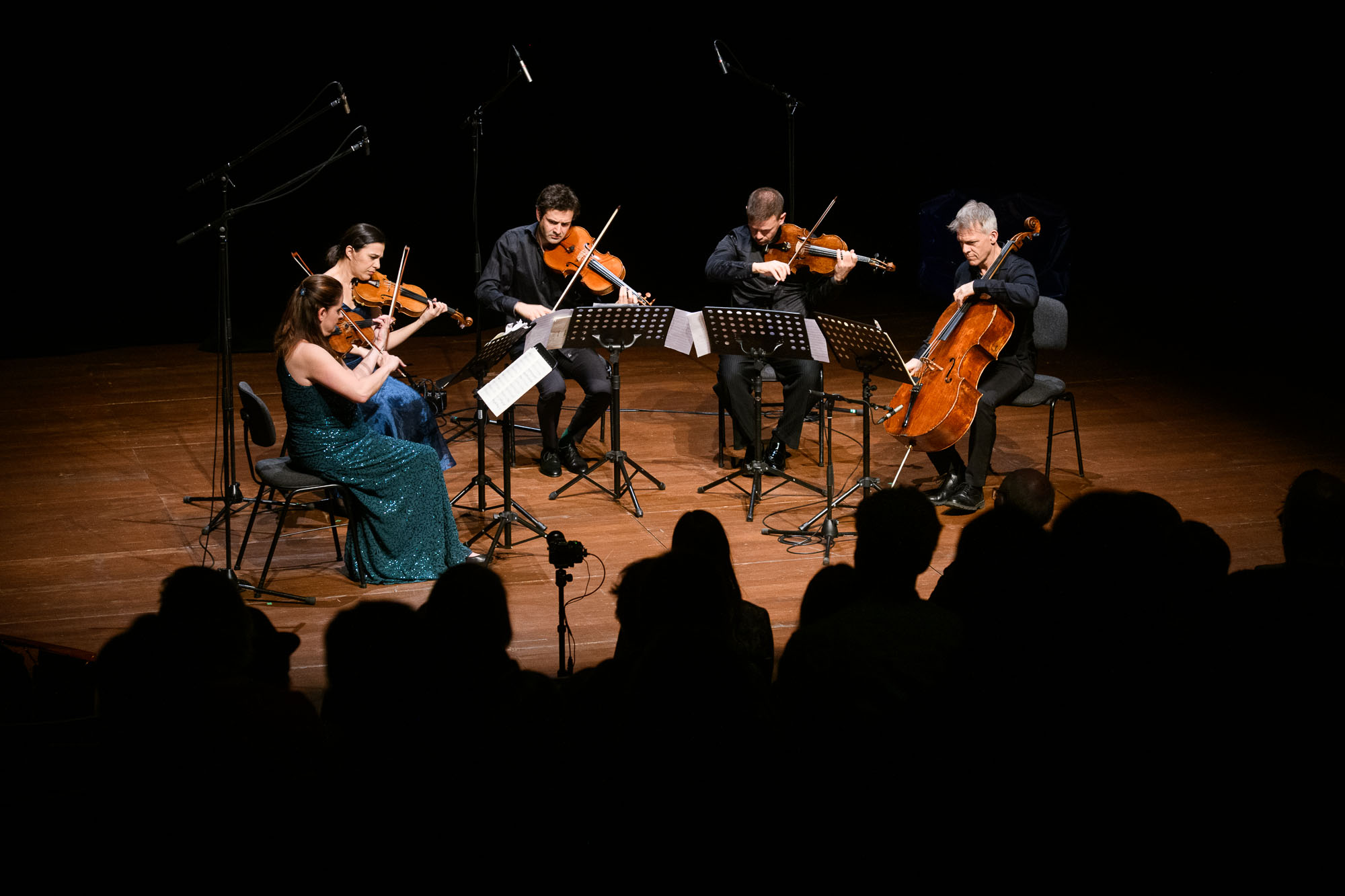News release
From:
Physiology: Classical symphonies may lead to synchronised physical responses *IMAGES*
Movement and some physical responses — including heart rate, breathing rate, and the electrical conductivity of skin (suggesting excitement) — may synchronise between audience members at classical concerts, suggests a study of 132 people published in Scientific Reports. Individuals rated more highly for personality traits such as agreeableness or openness were more likely to synchronise with other audience members.
Synchronisation can be used to describe the coordination of two unrelated processes at a statistically significant level, although the processes do not have to be occurring simultaneously. Between humans, synchronisation is usually observed in physical responses such as breathing. Most synchronisation in humans is caused by a direct social interaction with another person. However, synchronisation can also be induced by non-social external factors. Previous studies have shown that music may be able to induce synchronisation in listeners, but there has been little investigation into whether concert audiences become synchronised.
Wolfgang Tschacher and colleagues observed 132 people whilst they listened to a concert consisting of three classical music pieces played by a string quintet: Ludwig van Beethoven’s “Op. 104 in C minor”, Brett Dean’s “Epitaphs”, and Johannes Brahms’ “Op. 111 in G major”. The authors monitored the participants’ movement with overhead cameras and their physical responses with wearable sensors. They also asked the participants to fill in questionnaires about their personality and mood both before and after the concert. The authors observed significant synchronisation between audience members for movement, heart rate, breathing rate, and the electrical conductivity of skin (which indicates arousal of the sympathetic nervous system). The greatest level of synchronisation was seen in the breathing rate. Additionally, the personality traits of a listener were associated with their likelihood of synchronising physical responses — those with agreeable or openness traits were more likely to become synchronised, whilst those with neurotic or extravert traits were less likely to become synchronised.
The findings suggest that music may be able to induce synchronisation in physical responses between audience members, and that personality traits may have an effect on the likelihood of an individual becoming synchronised with other audience members. The authors note that they experienced gaps in data collection due to prioritising wearer comfort over data quality when choosing sensors, and suggest that more reliable data collection methods are developed for future studies.
Multimedia






 International
International



